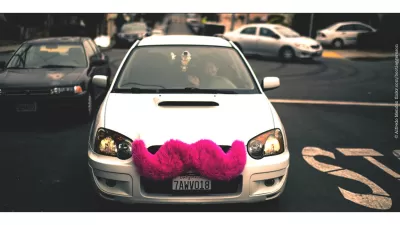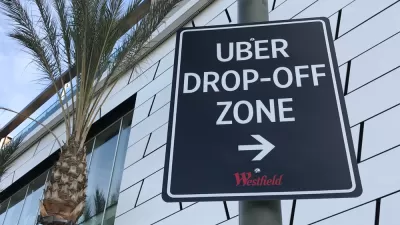Gabe Klein discusses some of the merits and challenges of forging private-public partnerships between disruptive companies and government entities.
Writing for Urban Land Magazine, Klein discusses private-public partnerships between companies within the sharing economy and governments. In particular, he reflects on his experiences working at Zipcar.
Noting how new services such as Uber and Lyft are helping cities fill transportation system gaps at a relatively low cost, these companies show, "that if government doesn’t pay attention to disruptive technology, new companies will find a way to work around the government... they have created a net-positive influence because they ultimately have shifted the balance of power in favor of consumers."
Unlike Uber and Lyft though, Zipcar worked hand in hand with governments to form a strong and effective partnership, "after many meetings with the powers that be in various cities including Washington, D.C., we figured it out together: a new local regulatory structure was born for 'car sharing' in most locales, which allowed us to operate and work toward profitability." With this new regulatory structure, governments provided high-profile parking spots and additional marketing, while Zipcar closed gaps in the transportation system.
Klein also outlines his key principles for successful PPPs: embrace and shape change, prioritize the public ahead of private interests, be flexible and compromise to benefit the public good and allow for profitability, and promote transparency.
FULL STORY: Access versus Ownership

Planetizen Federal Action Tracker
A weekly monitor of how Trump’s orders and actions are impacting planners and planning in America.

Map: Where Senate Republicans Want to Sell Your Public Lands
For public land advocates, the Senate Republicans’ proposal to sell millions of acres of public land in the West is “the biggest fight of their careers.”

Restaurant Patios Were a Pandemic Win — Why Were They so Hard to Keep?
Social distancing requirements and changes in travel patterns prompted cities to pilot new uses for street and sidewalk space. Then it got complicated.

Platform Pilsner: Vancouver Transit Agency Releases... a Beer?
TransLink will receive a portion of every sale of the four-pack.

Toronto Weighs Cheaper Transit, Parking Hikes for Major Events
Special event rates would take effect during large festivals, sports games and concerts to ‘discourage driving, manage congestion and free up space for transit.”

Berlin to Consider Car-Free Zone Larger Than Manhattan
The area bound by the 22-mile Ringbahn would still allow 12 uses of a private automobile per year per person, and several other exemptions.
Urban Design for Planners 1: Software Tools
This six-course series explores essential urban design concepts using open source software and equips planners with the tools they need to participate fully in the urban design process.
Planning for Universal Design
Learn the tools for implementing Universal Design in planning regulations.
Heyer Gruel & Associates PA
JM Goldson LLC
Custer County Colorado
City of Camden Redevelopment Agency
City of Astoria
Transportation Research & Education Center (TREC) at Portland State University
Camden Redevelopment Agency
City of Claremont
Municipality of Princeton (NJ)





























